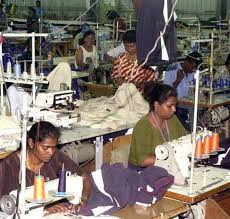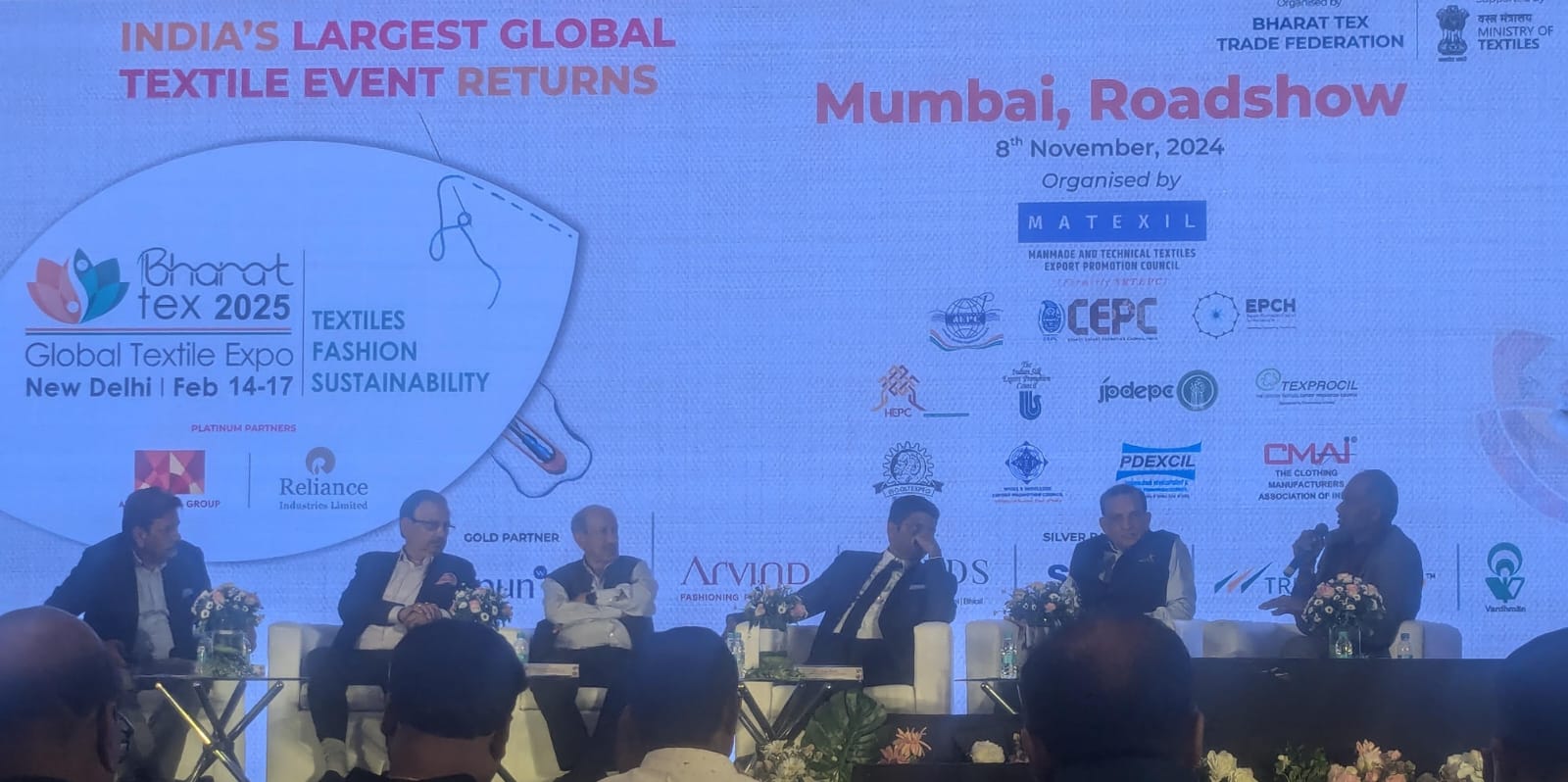FW
A recent Bloomberg report suggests, China, in order to aid its own cotton farmers by supporting cotton prices, has been buying up excess production into government stockpiles. The world’s biggest producer and user of cotton will have 12.7 million metric tons in inventory by July 31, 2014, 62 per cent of the global total and enough to make about 71 billion T-shirts. But while growers in the US and Brazil cut output, to deal with the price drops related to excess production, Chinese farmers boosted production, having been guaranteed both a minimum price and a buyer.
Even, Moody’s Investors Service has moved its outlook for the Asian steel and coal sectors to negative, highlighting the severe overcapacity problem that China is facing as it strives to resolve its production worries. China’s steel industry had a total profit of 1.58 billion yuan in 2012, a 98 per cent year-on-year drop, caused by rising iron ore prices and a weak market.
Overproduction woes continue, and have spread throughout the Chinese economy, as government interference through subsidising markets has only made the problems worse by encouraging more of the bad behaviour they wish to change. For example, by buying cotton in order to stabilise cotton prices, so as to avoid the embarrassment of having to go through a ‘cotton crisis’ in front of the world, the Chinese government only exacerbated the problem. Instead of curbing production, the policy ended up encouraging farmers to plant even more cotton. The farmers have taken advantage of a guaranteed government price by expanding their operations in the face of a guaranteed level of income and profit. Now the Chinese government has more cotton than it can know what to do with. Cotton that it must eventually put up for sale in the market, undermining the very prices it was trying to stabilise. Instead of stability, wild price swings will result, as uncertainty about government intentions will lead to overreacting.
Sampath Bank has joined the Joint Apparel Association Forum (JAAF) initiative for launching Sri Lanka's first smart card for apparel sector employees. ‘Ransalu Pranaama’ is a program aimed at recognising and rewarding people in the apparel sector for their contribution and dedication towards the industry.
In association with the Ministry of Industry and Commerce and Sri Lanka Apparel, this program has been developed to give economic relief by way of privilege offers and price advantage to apparel employees through a network of leading consumer brands. Sampath Bank has stepped in as the sole banking partner offering a range of facilities and benefits to this segment of workers.
Tuli Cooray, Secretary-General of JAAF has appreciated and thanked Sampath Bank for coming forward to join hands with the initiative and extending these facilities to the deserving workforce in any industry of Sri Lanka.
Jaafsl.com
From next year, Taipei in Style (TIS) will be held twice a year, once in April and then in September. Justin Huang, Secretary General, TTF has said that the number of days too will increase from three days to four days from next year.
The following year TIS will have more to see and explore. “We are going to invite more retailers, buyers for fashionable dresses. There are plans to increase resources in R&D and innovation extending to the fashion market. We have given this information to leading players in Taiwan and they are in the process of preparing for it. Some new fabrics will also be explored in the market in Paris or Las Vegas probably and our suppliers will bring these kinds of functional fabrics. TIS will also have more international exhibitors because Taiwan is not only an international market but it is also getting involved with neighbouring countries.”
TIS next year will be a new start with Spring /Summer and Autumn/Winter. “The scale of activities will be enlarged and we hope more and more international designers and brands use this platform not only for Taiwanese markets but also for the Chinese and Japanese markets. We are confident that more companies will participate in large numbers,” sums up Huang.
Wrangler has recently introduced denim that comes with a unique feature of keeping warmth. The range is available in iconic fits and is also water resistant.
The range consists of jeans that are woven in thermolite fibres which help in retaining the warmth without any extra weight. Thermolite, Invista’s premium fabric technology is basically a hollow core fibre, which simulates the fur of a polar bear and traps air to give added insulation.
Wrangler has used thermolite fabric in its insulated fabrics that are full of functional details. For this season, the brand has made use of warming wool, corduroy and premium real down in its collection. The trial of the ‘Keep you Warm’ collection was conducted at a specialized test institute in the US and each piece is labeled with the temperature at which it can be worn.
Wrangler is on a mission to offer unique pair of jeans with functional features for its denim consumers.
www.wrangler.com
 Fiji’s clothing industry has a special agreement with Australia and New Zealand called Spartaca and has duty free access. But Spartaca hasn’t moved with the times. Koushik Kumar, President, TCF explains, “If changes to Spartaca had been made we would have been 50 per cent larger than we are now. Earlier we would produce volumes for Australian brands. But China, Indonesia, Bangladesh came up with cheaper options and we lost a lot of business. We now rely on multiple buyers. We specialize in niche markets and quick turnarounds because small run customers are ready to pay us a slight premium. That works well for both parties. We have 50 factories who are members of the TCF Council of Fiji. We make fashion, work wear, school uniforms, and high fashion women’s wear.”
Fiji’s clothing industry has a special agreement with Australia and New Zealand called Spartaca and has duty free access. But Spartaca hasn’t moved with the times. Koushik Kumar, President, TCF explains, “If changes to Spartaca had been made we would have been 50 per cent larger than we are now. Earlier we would produce volumes for Australian brands. But China, Indonesia, Bangladesh came up with cheaper options and we lost a lot of business. We now rely on multiple buyers. We specialize in niche markets and quick turnarounds because small run customers are ready to pay us a slight premium. That works well for both parties. We have 50 factories who are members of the TCF Council of Fiji. We make fashion, work wear, school uniforms, and high fashion women’s wear.”
Talking about the problems in Spartaca, “Kumar says, “We want free trade. We want  duty free access of Fijian products to Australia and New Zealand. At the moment, we have a 50 per cent local content rule. In Fiji, there’s no raw material. We are basically selling labor. So we are restricted in meeting the 50 per cent rule. Ideally, we want this rule to go or at least reduced.”
duty free access of Fijian products to Australia and New Zealand. At the moment, we have a 50 per cent local content rule. In Fiji, there’s no raw material. We are basically selling labor. So we are restricted in meeting the 50 per cent rule. Ideally, we want this rule to go or at least reduced.”
With a slowdown in demand from America the industry has significantly reduced in terms of export as well as employment. About 70 per cent of our exports go to Australia and 20 per cent goes to New Zealand and the rest goes to Pacific islands, America and Europe. Fiji is restricted in terms of skills. There is a dearth of skill development training facility. “We are working on starting training courses. That will help us upscale our labor. At the moment there are very little branded products made in Fiji.
The Fiji clothing industry employs around 5,000 people. “In 2,000 some 18,000 people were employed. Those days most of our exports were to the US due to the absence of quotas. Once the quota situation changed, a lot of Asian manufacturers closed down and took their production to where they could get better access to America. Out of Fiji’s total exports, clothing occupies 9 per cent,” says Kumar.
China is the biggest raw material suppliers apart from India and Indonesia. Kumar elaborates, “We buy fabrics from India but the lead times are longer. Additionally India is more expensive compared to China. Delivery times are shorter and shipping links are better but we have some reliable suppliers in India and the quality is good. Communication is easier in India. With India, we can work directly with the mill. In China we have to go through an agent. Now shipping links between India and Fiji are getting better and lead times are reducing.”
Fiji is receiving a lot of support from India and China. But India and China are export economies. They are interested in selling not importing. “I don’t think Fiji has anything to offer India and China. Australia and New Zealand will continue to be our biggest markets. We are targeting a 10 per cent growth a year,” said Kumar.
www.makeitinfiji.com
Taiwan Textile Federation is committed to planning and promoting the ‘Taiwan Functional Textiles’ (TFT) certification system. At present, TFT has established several certification standards, including the standards for 18 products, based on the criteria set up by ‘Committee for Conformity Assessment on Accreditation and Certification of Functional and Technical Textiles’ and offered product certification service to functional textile manufacturers and merchandisers. The TFT certificate label is now registered in Taiwan, US, European Union, Korea and Japan.
After several efforts in R&D in functional textiles, the Taiwan textile industry has reached a general consensus on what they ought to do in the future. Renowned firms have been devoting efforts in research and production of functional textile goods. As products can vary in quality, buyers and consumers must test and use the textiles to verify the acclaimed functions. Therefore, the importance of product quality assurance approved by a reliable organization was given high precedence. A certification system would be important to local and overseas buyers and consumer who can look for the certificate label to identify the quality of the products they are buying.
Intertextile Shanghai Home Textiles – Spring Edition, due to take place in March 2014 stands postponed until 2015. Wendy Wen, Senior General Manager of Messe Frankfurt (HK) explained that all the stakeholders were consulted prior to taking the decision. Local exhibitors feedback is that only one home textile fair in Shanghai during 2014 was desirable was the reason for the postponement,” Wen said.
Wendy said they will be concentrating on the 2014 autumn fair as it would be more beneficial for exhibitors and local buyers. The Spring edition scheduled for 2015 will go ahead as overseas orders in the Asian region and China will pick up. It will be held concurrently with Intertextile Shanghai Apparel Fabrics – Spring Edition, with the synergies of this co-location providing new opportunities for exhibitors and visitors of both fairs.
Messe Frankfurt’s two other home textile fairs in China will be held as per schedule in 2014, providing overseas exhibitors and buyers access to the numerous opportunities in the Asian home textile market. From March 18-22, 2014, Intertextile Guangzhou Hometextile China will be held concurrently with the China International Outdoor & Leisure Fair, Homedecor & Housewares China and the China International Furniture Fair (Guangzhou) whereas Intertextile Shanghai Home Textiles-Autumn Edition will take place from August 27 to 29, 2014 at the Shanghai New International Expo Centre.
 Set up in 2007, CLASS (Creativity Lifestyle and Sustainable Synergy) is a global unique multi-platform network that showcases exclusive fashion, textiles and materials created using smarter sustainable technology. The initiative provides a comprehensive global communication, marketing and product development consulting service through innovative and sustainable design solutions.
Set up in 2007, CLASS (Creativity Lifestyle and Sustainable Synergy) is a global unique multi-platform network that showcases exclusive fashion, textiles and materials created using smarter sustainable technology. The initiative provides a comprehensive global communication, marketing and product development consulting service through innovative and sustainable design solutions.
The product categories available at CLASS showrooms include natural and organic  textiles made from wool, silk cashmere, cotton, linen, hemp, vegetable tanned and dyed leather. Fabrics made from recycled polyester (eg. Newlife), recycled polyamide, cashmere, cotton, denim and wool (e.g. Cardato Regenerated) created to reduce carbon footprint. Innovative renewables made from new biopolymers (e.g. Ingeo), paper, milk protein, soy, seaweed, regenerated cellulosic’s (e.g. Tencel),wood pulp fibre (e.g. Lenpur), bamboo, Modal/Micromodal and crab’s carapace fibre (e.g. Crabyon). These textiles are designed to reduce dependency on oil and promote more sustainable renewable resources.
textiles made from wool, silk cashmere, cotton, linen, hemp, vegetable tanned and dyed leather. Fabrics made from recycled polyester (eg. Newlife), recycled polyamide, cashmere, cotton, denim and wool (e.g. Cardato Regenerated) created to reduce carbon footprint. Innovative renewables made from new biopolymers (e.g. Ingeo), paper, milk protein, soy, seaweed, regenerated cellulosic’s (e.g. Tencel),wood pulp fibre (e.g. Lenpur), bamboo, Modal/Micromodal and crab’s carapace fibre (e.g. Crabyon). These textiles are designed to reduce dependency on oil and promote more sustainable renewable resources.
It is an international eco-platform that supports and promotes environmentally sensible products for fashion, home and design through a wide range of eco-textiles, yarns, processes and services. Its global network of showrooms feature a comprehensive materials library, available for businesses, designers and buyers as well as highlights from ranges of finished high-quality and stylish fashion garments and accessories, products for the home, and eco-relevant lifestyle products. From marketing and product development consulting service centered around a new approach to textiles that includes design, innovation and responsibility, CLASS serves as a complete communication tool.
Green Carpet Challenge
In 2012, CLASS joined forces with ‘The Green Carpet Challenge’ (GCC) by Livia Firth to create the first “Green Carpet Challenge Fabric Library”. The Green Carpet Challenge is a dynamic project founded by Livia Firth and British journalist Lucy Siegle which pairs glamour and ethics to raise the profile of sustainable style at the world’s most high profile red carpet events.
(GCC) is a fast moving, dynamic project working on a number of levels to unlock the potential of Sustainable Style. Working with A-list designers and pioneering sustainability in brands, the GCC has catapulted sustainable style into the spotlight at the world’s most high profile events. From the Golden Globes and Academy Awards to the Met Ball and Cannes Film Festival, the GCC has collaborated with all the iconic design houses in the world winning widespread critical acclaim and international media attention.
The Green Carpet Challenge (GCC) team are experts in sustainable supply chain innovation and fabric technology. It works directly with brands to develop their supply chain, traceability and sustainable credentials, across the board or with specific product focus. In addition the GCC collaborates with the world’s top designers and fashion houses on high profile, event based projects. The GCC team also drives and champions an impressive sustainability agenda throughout the fashion and accessories sectors.
Europlasma NV has recently signed a commercial agreement with Pinnacle Tech of Taipei under which they will focus on the technical textiles industry in Taiwan.
Europlasma’s low pressure plasma technology can be used to clean, etch or activate technical textiles. There is a growing demand for Europlasma’s patented and patent pending Nanofics nanocoating technology to make textiles super hydrophilic, or super hydro- and oleophobic in a durable fashion. Nanofics technology is a dry and clean alternative to traditional wet chemical processing. These nanocoated textiles are used in filtration, in the medical field, in personal protective equipment, and outdoor applications. Pinnacle Tech will develop sales and after sales service for the Taiwanese market and will sell Europlasma’s low pressure plasma technology to the technical textiles industry in Taiwan.
Readymade garment factories in Bangladesh have almost stopped recruiting workers. One reason is that the revised wages has come into force from December. Another is that export orders have fallen. Long term and bulky export orders are getting infrequent. In these circumstances, apparel makers are now unwilling to recruit workers. Some factories are even thinking of laying off of workers.
In addition there is a problem of labor unrest. Owners fear hooligans will gain entry into the premises in the guise of hired labor and create problems. Owners are not appointing workers, but are rather trying to cut jobs to adjust to the new wage structure. They claim they are facing a situation where wages are on the rise while production levels are dropping. However, labor representatives claim that some of the factories are selectively dismissing workers, particularly those who are involved in trade unions.
As a way out, apparel makers want incentives from the government. Around 44 lakh workers are employed in the country’s readymade garment sector – 80 per cent are women especially from rural areas. Some factory owners have opted for avoiding recruitment of male workers after violent labor unrest.












